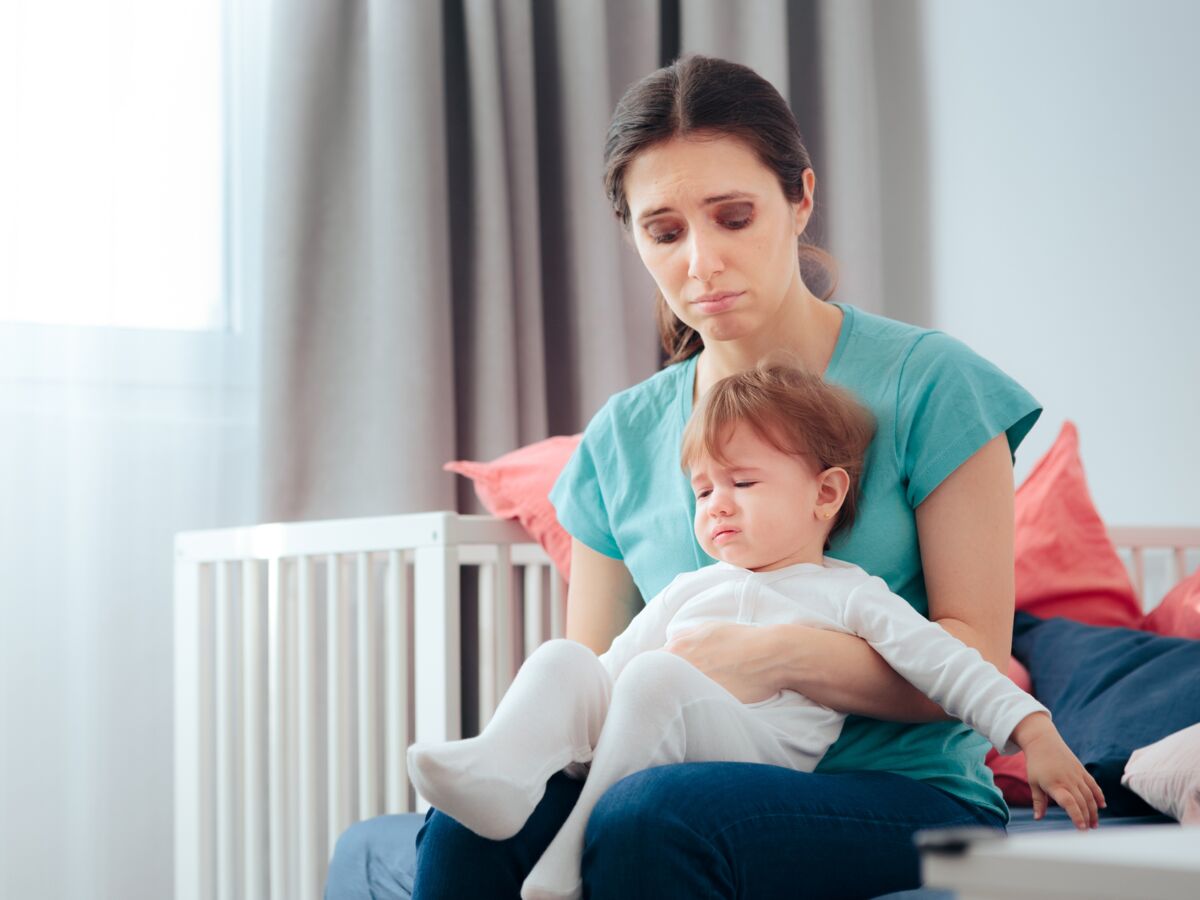Gastroenteritis is a common condition in children characterized by inflammation of the stomach and intestines. Formerly called “stomach flu”, acute gastroenteritis is in most cases of viral origin: noroviruses (at any age) and rotaviruses (especially in the baby and the little child) are most often the cause.
Infection occurs more frequently in winter, peaking in January. Children under 5 years old are most affected by viral gastroenteritis.
Vomiting, diarrhea, fever, stomach ache… Symptoms of gastro in children and babies
It is important to recognize the symptoms of gastroenteritis in children and implement appropriate treatments to help relieve symptoms and prevent dehydration. The symptoms of gastroenteritis (whether caused by a virus or bacteria) are quite recognizable: diarrhea, vomiting, abdominal pain, fever and nausea.
- Diarrhea is characterized by frequent, watery stools sometimes accompanied by mucus or blood.
- Vomiting can be repetitive and cause loss of appetite.
- Abdominal pain can appear in the form of cramps or discomfort.
- Some children may also have a fever, although this is not always the case.
- Nausea can lead to a reduced appetite in children.
If the symptoms of gastroenteritis (diarrhea, nausea, stomach pain, etc.) persist, worsen or if you notice signs of severe dehydration, it is important to consult a doctor.
Signs of severe dehydration include dry mouth, not urinating for long periods of time, drowsiness, or extreme irritability. A doctor will be able to assess the severity of your child’s gastroenteritis and recommend other treatment measures if necessary.
Gastroenteritis, in severe cases and especially in babies, may require your child to be hospitalized to be rehydrated using a tube inserted through the nose and placed in the stomach (nasogastric tube) or by infusion. “The main indicator to watch is weight,” emphasizes Dr. Zvi Rozental – especially in cases of severe diarrhea.
How do you know if it’s gastro or food poisoning?
The symptoms of food poisoning or gastroenteritis are similar (diarrhea, vomiting, nausea, etc.), so it is complicated to decide! However, one clue should alert you: food poisoning manifests itself in the hours following consumption of contaminated food. Gastroenteritis has an incubation period of 24 to 72 hours.
How to quickly treat gastro in children?
To quickly treat gastroenteritis in children, you still need to know whether it is caused by a virus or a bacteria. We detail the two scenarios and the good reflexes to adopt.
What treatments and medications for gastroenteritis caused by a virus?
When the child shows symptoms of gastroenteritis, it is important to take measures to relieve it and prevent dehydration. Antibiotics are inactive against viruses and are therefore useless in cases of viral gastroenteritis.
- The doctor prescribes an oral rehydration solution (ORS) to be used without limitation. In the event of viral gastroenteritis, taking this rehydration solution is generally sufficient. Rehydration is essential in the treatment of gastroenteritis in children and is the main point of attention. Indeed, fluid losses caused by diarrhea and vomiting must be compensated by giving the child special oral rehydration solutions. These solutions are available in pharmacies and can be purchased without a prescription. They contain an adequate balance of salts and glucose to help restore hydration to the body. It is recommended to administer small amounts of oral rehydration solution frequently.
- If the sick child is breastfed, it is important to continue breastfeeding during gastroenteritis. Breast milk provides essential nutrients and helps protect the child against infections. If the baby is bottle-fed, you can give smaller, more frequent bottles of oral rehydration solutions or diluted formula. It is best to avoid solid foods while vomiting persists.
The doctor may also prescribe:
- probiotics (not reimbursed by Health Insurance),
- racecadotril (Tiorfan®),
- or smectites (digestive dressings) contraindicated before the age of 2 because they may contain small doses of lead.
Once the vomiting and diarrhea have subsided, light and easily digestible foods should be reintroduced: rice, potatoes, bananas, stewed fruits and cooked vegetables. It’s important to avoid fatty, spicy, or hard-to-digest foods because they can make symptoms worse.
What treatments and medications for gastroenteritis caused by bacteria?
In cases of gastroenteritis of bacterial origin, antibiotics are indicated only when the diarrhea is accompanied by significant general signs and it is an infection with a specific bacteria (for example, Shigella Or Campylobacter) which responds to antibiotics.
“There is now an oral vaccine, to be given before the baby is 6 months old“, adds Dr. Zvi Rozental. It is a drinkable vaccine, the three doses are spaced 4 weeks apart.
What not to do if you have gastroenteritis
It is essential not to give anti-emetic or anti-diarrheal medications to a child with gastroenteritis. Anti-diarrhea medications can prolong infection by preventing the elimination of pathogens and are generally not recommended for children unless directed by a healthcare professional.
Pediatrician Zvi Rozental advises consulting if symptoms persist beyond 48 hours to 72 hours, and immediately if fever is one of the symptoms.
Transmission: is gastro contagious?
Yes, gastroenteritis is very contagious. To avoid catching it, simple hygiene measures should be adopted as quickly as possible, as soon as the first symptoms appear in the family: wash your hands often and regularly disinfect objects and surfaces that could be in contact with it. contaminated diarrhea or vomiting (changing table, pacifiers, glasses, comforters, toys, etc.).
How long are we contagious?
An infected person can transmit the disease as long as they have symptoms (diarrhea, vomiting, etc.) and even up to two weeks after their disappearance.
How long does gastroenteritis last?
Typically, the “hard period” of gastroenteritis (with diarrhea, vomiting and stomach pain) lasts between 24 hours and 72 hours. However, in certain sensitive people, symptoms can last up to ten days. It is then imperative to consult your doctor.
Sources:
Read also :
⋙ Bad breath in children: the different possible causes and the best solutions
⋙ Food allergies: the list of the most common and the symptoms that should alert you
⋙ Angina in children: symptoms to recognize and treatments
